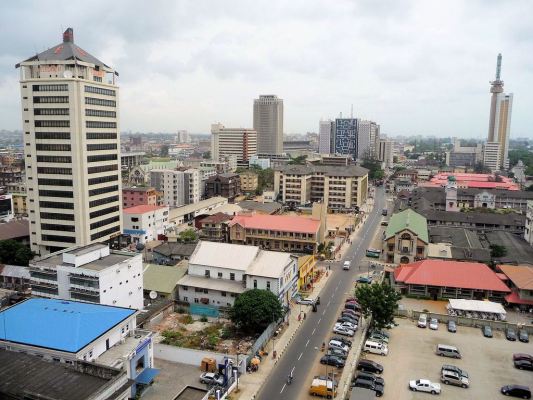The UN has set aside the 1st Monday of October every year as World Habitat Day. This year’s celebration will coincide with Nigeria’s independence anniversary. As a nation, our HOUSING POLICY HAS FAILED. In 59 years, we are yet to have a clear direction on the provision of AFFORDABLE HOUSING SOLUTIONS and a vibrant HOUSING FINANCE SYSTEM TO SUPPORT IT. Come October 1st, numerous cronies representing Government interest will congratulate the Ministry of Housing on the pages of print media, for doing NOTHING. Absolutely NOTHING.
“Everyone has the right to a standard of living adequate for the health and well-being of himself and his family, including food, clothing, housing and medical care and necessary social services, and the right to security in the event of unemployment, sickness, disability, widowhood, old age or other lack of livelihood in circumstances beyond his control.” Universal Declaration of Human Rights (Article 25.1).
As noted in one of my earlier postings this month, excessive levels of urbanization in relation to the economic growth have resulted in high levels of urban poverty and rapid expansion of unplanned urban settlements and slums, which are characterized by a lack of basic infrastructure and services, overcrowding and substandard housing conditions. Slums have wide adverse impacts on people and the society (MAKOKO, BADIYA, OWORONSHOKI, LEKKI). One important task for Government to meet the human settlements challenges is to devise mechanisms and systems by which an adequate and steady flow of long-term financial resources from both the public and private sectors could be mobilized and channeled into human settlements development and particularly in low income housing development and slum upgrading.

There is no more need for white papers and executive summaries. Any effort in that direction is wasteful and and lacks objectivity. Numerous reviews and analysis of housing finance systems and mechanisms in Nigeria has been done. Most of it was funded by the likes of World Bank, IFC and lately by DFID. We have enough materials to work with, it is now time for ACTION. These comprehensive studies were conducted on important housing finance issues such as market infrastructure – legal and regulatory frameworks, property rights, land rights and registration, law enforcement; relationship of housing finance systems to the wide national economy and financial sector.
The housing deficit in Nigeria is approximately 17m (not confirmed) and the Ministry of Housing has no clue as to where to start addressing the proble. For free, I will propose a few things that can be done at the national and state level that will make an immediate impact on the current housing challenges in the country.
1) There must be direct, delibrate and appropriate action taken in order to promote, protect and ensure the full and progressive realization of the right to adequate housing. If Government does not recognize the fact that every Nigerian has a right to adequate shelter, no amount of propaganda and “mushroom” policy will work.
2) Federal Government (NASS) must pass the bill amending the Land Use Act. This will form the basis of creating an enabling environment for a vibrant Housing Finance System.
3) State Governments must strive improve the effectiveness, efficiency and accessibility of the existing housing finance systems and must also try to create and devise innovative housing finance mechanisms and instruments and to promote equal and affordable access to housing finance for all people (CROSS RIVER STATE MINISTRY OF MORTGAGE FINANCE, LAGOS STATE MORTGAGE BOARD and LAGOS STATE HOME OWNERSHIP MORTGAGE SCHEME are good examples of a Government with vision).
4) Local Governments must look inwards to generate needed funds for executing social programs. There should be a Local Government Finance Systems Initiative aimed at promoting shared responsibilities between governments, the private sector, non-government organizations (NGOs) and community-based organizations (CBOs) to explore innovative mechanisms and instruments to finance urban development and basic urban services and infrastructure. Particularly it should focus on how to tap the private sector resources to provide urban services and infrastructure to the poor and how community-based organizations can participate effectively in urban development and urban services and infrastructure provision and management.
Finally, “Shelter for All” can only be achieved if efforts are made at all levels and stages. Despite the overall growth of the Nigerian economy, the number of people living in in-human conditions is growing due to rapid urbanization, unbalanced development and distribution. Investing in housing, particularly that of the poor, is central to the achievement of the Millennium Development Goals. It also requires Government & Private Sector to mobilize all resources including the resources of the poor and to treat the poor as assets rather than burden.
By Kunle faleti





